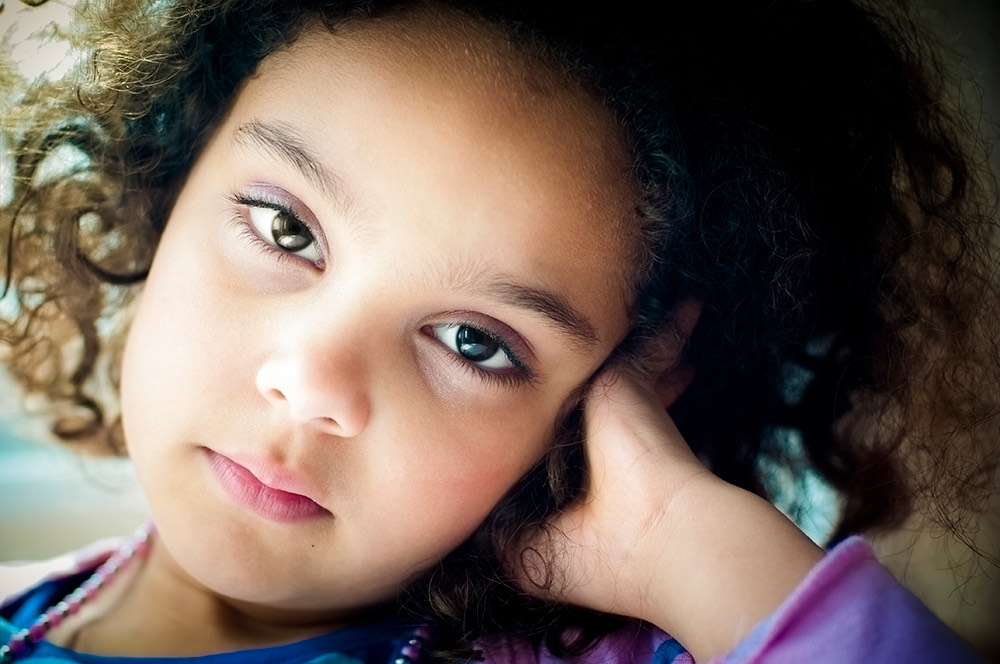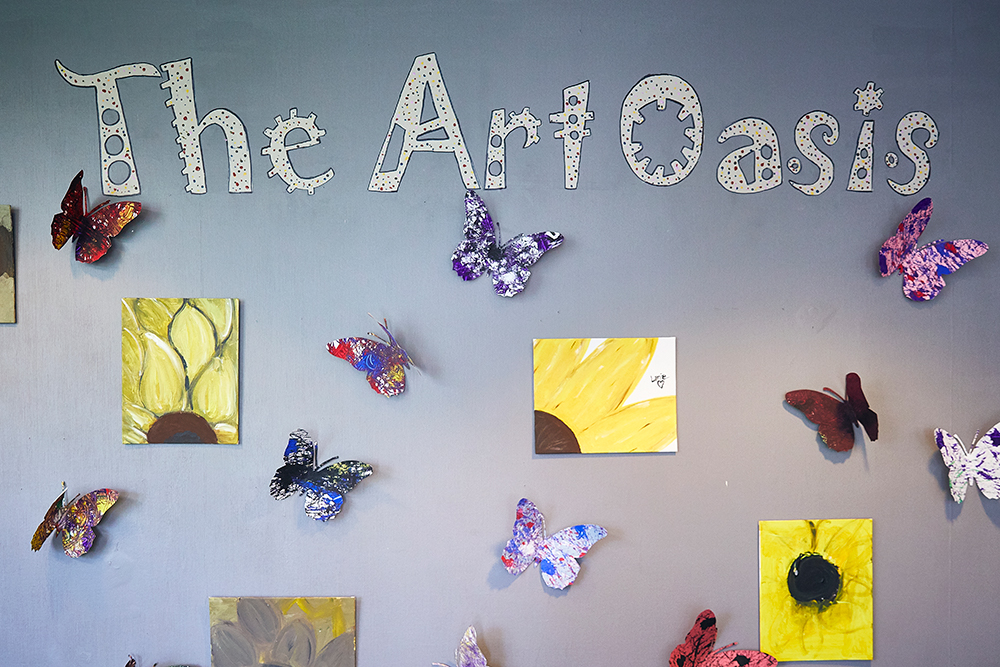Psychiatric Residential Treatment Facility (PRTF)
Personalized programs. Informed care. Amazing outcomes.
What Is a PRTF?
The Bradley Center’s Psychiatric Residential Treatment Facility (PRTF) is an intensive mental health treatment facility where children ages 6–18 who have severe mental, emotional, intellectual, and behavioral challenges receive 24-hour care and therapy. Residential treatment programs are designed to help kids develop the skills they need to effectively manage their own self-care when their temporary stay at Bradley ends.
A Safe Place for Children to Start Over
When kids are dealing with complex problems like trauma, unsafe behavior, or mental health issues, they need much more help than just firm rules or well-meaning advice. They also need comprehensive, compassionate medical and therapeutic care that is individually tailored to help each child manage his or her own specific behavioral challenges, in their own way and at their own pace. Our residential treatment program reinforces opportunities for children and families to create and maintain healthy relationships, learn from past mistakes, exercise good decision-making, and manage mental health symptoms.
“Children are their own best advocates, so we teach them how to advocate for themselves. If a particular medication or treatment isn’t working, or if its downsides outweigh the good, what else can we try? Ultimately, we want every child to be on the lowest amount of medication needed in order to manage themselves well — and whenever possible, no medications at all.”
Where Kids Can Be Kids
Many children who come to Bradley have experienced challenges that are hard to talk about and difficult to process. Our residence provides them with the opportunity to form new friendships, join in games and activities, play sports, create arts and crafts, play, laugh, and simply “be kids.” From our in-house activities that are guided by staff and volunteers to field trips that give them a chance to see new and interesting things, there are plenty of opportunities each day for a child to express themselves, connect with others, and have fun.
Personalized Care
Our team of trained and licensed psychiatrists, pediatricians, nurses, therapists, and staff provide around-the-clock care, safety and supervision according to the Sanctuary Model® of trauma-informed care. This means that all Bradley Center youth receive the space, structure, and support they need to learn how to best manage their mental, emotional, phsyical, and/or post-traumatic challenges and find the best solutions that work for them.
Eating, Sleeping, Playing, and Recovering
The Bradley Center PRTF includes residential medical facilities, a gymnasium, computer labs, dining hall, community spaces, and indoor and outdoor recreation areas. All meals are provided and served in a beautiful child-friendly atmosphere, many of which are provided in accordance with The National School Lunch Program.
Full Support from Diagnosis to Discharge
Resident care first begins with a proper diagnosis of every child’s individual challenges. This ensures that every child receives the best treatment. Under the guidance of our Chief Medical Officer, our staff follows a three-part approach to developing and adjusting each child’s treatment plan:
- Personalized Therapy – In individual, group, and family therapy sessions, children can talk through their experiences, emotions, and frustrations, and learn new ways to express and manage their feelings, impulses, and expectations.
- Medication Management – Youth are asked to provide honest feedback about their experiences with any medications they may take, to ensure that their positive progress is not impeded by negative reactions to their prescriptions. This is crucial to determine the best prescription for each child, as well as understanding when a medication may no longer be useful or necessary. Medication education is provided to children and their parents to ensure understanding of the purpose of each medication related to their diagnosis.
- Inclusive Environment – While our programs are based on proven techniques and best practices, they are also adapted to suit the individual needs of each child or group based on their age, gender expression, and situation.
Appropriate Residential Care
Youth reside in one of four halls that are differentiated based on their gender expression and behavioral challenges.
Adaptive Care Methods
Our staff knows that what works well for one child may not always apply to others. For example, while talking about their emotions may be a popular topic in our Impressions Group, youth in our Discovery Group may be reluctant to openly discuss their feelings. By regularly adapting the personal care approach for each group and working to form trusted connections, our staff finds the best way to counsel every child on his or her own terms, rather than requiring all youth to follow the same inflexible plan.
Evidence-Based Programs and Proven Best Practices
Our residential treatment programs are designed to help children stabilize their behavior, strengthen their self-regulation, and improve their conflict mediation and decision-making skills. By following treatment plans that focus on improving their own self-control and self-care, Bradley Center kids are empowered to steadily become more confident and capable. As they gain control of their impulses and renew their sense of self-worth, they develop valuable new coping and communication skills that will continue to benefit them long after they leave Bradley.
Individualized Care Plans That Evolve Over Time
With the help and expertise of our doctors, therapists, and child development specialists, every Bradley Center child follows his or her own individualized care plan that is designed to address that child’s particular needs, challenges, and opportunities for improvement. Our practice of making data-informed care decisions ensures that every child’s plan is regularly evaluated to find the optimal treatment, even as the child’s needs, skills, or situations change.
Progress Monitoring
For many kids, learning to manage their emotions and impulses is hard work, but the results are always worth it. To evaluate a child’s progress, a treatment team that includes the child and his or her family meets regularly to discuss each child’s treatment plan and share any relevant observations, insights, and suggestions. These evaluations measure a child’s progress toward achieving the treatment goals. The child’s personalized plan will continue to evolve and be updated with new treatments and new goals over time.
Collaborative Care
One key factor in a successful care plan is the involvement and collaboration of the other decision-makers and care providers in a child’s life, including families, teachers, school districts, or outside therapists and medical practitioners, if applicable. Working together with each contributor helps Bradley Center staff provide more comprehensive care, and ensures that each child’s eventual transition back to his or her home community goes smoothly.
Therapeutic Leaves
The goal of a home pass visit is to see how well a child can effectively apply the lessons that he or she has learned at Bradley to life at home. Once a child returns to Bradley from a home pass visit, our therapists speak with the family to evaluate progress: what’s working, what isn’t, and what new opportunities can we find to help that child continue on the path to receiving a full discharge from Bradley?
Discharge
When youth achieve their care plans’ goals and demonstrate that they are capable of successfully resuming their outside lives and responsibilities, the next step is discharge. At that time, a child’s external stakeholders and in-house care team meet to discuss that child’s best approach for reintegration into a regular routine. We work collaboratively with all parties to identify an official discharge date from Bradley and make plans for the child to return home to reconnect with family and friends.
How Long Do Kids Stay at Bradley?
Because every child’s situation is unique, each child follows his or her own timetable to achieving wellness and discharge.
Interested in Referring a Child for Residential Treatment?
To discuss referring a child to The Bradley Center’s Psychiatric Residential Treatment Facility, please call our Admissions Department at 412-788-8219, fax 412-809-9229, or contact us online.
Voices of Bradley
Sara Blake, Expressions & Insights Units Case Manager




